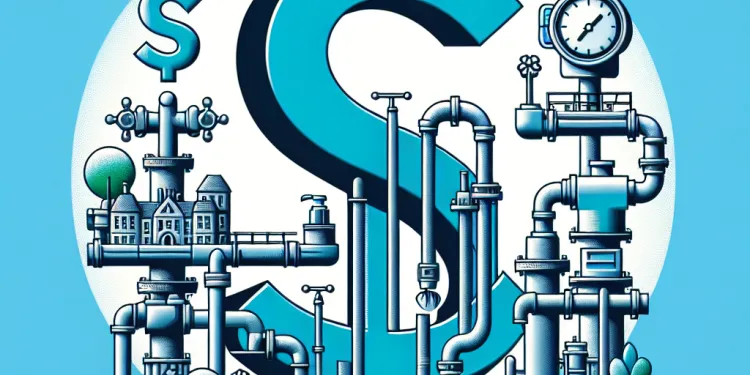
Find A Professional
More Items From Ergsy search
-
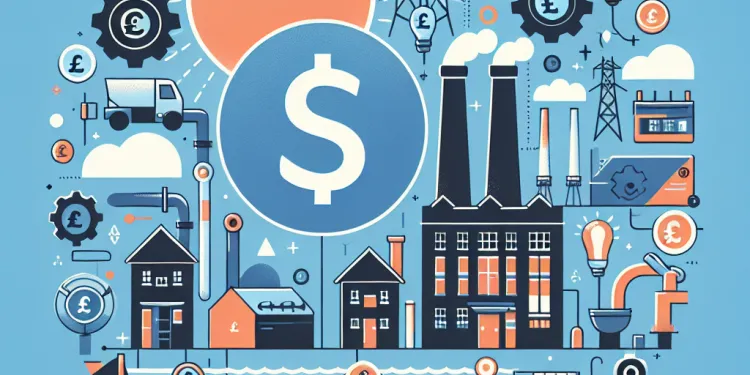
Are water companies responsible for maintaining water infrastructure in the UK?
Relevance: 100%
-
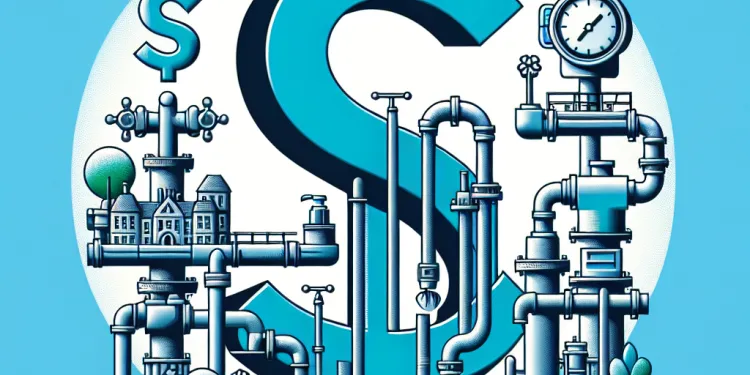
Are there penalties for not maintaining water infrastructure?
Relevance: 93%
-
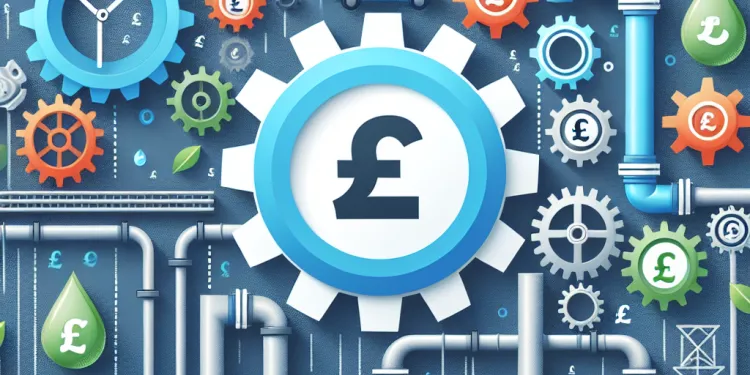
Are there initiatives to improve water efficiency in infrastructure?
Relevance: 83%
-

How do water companies fund infrastructure updates?
Relevance: 81%
-
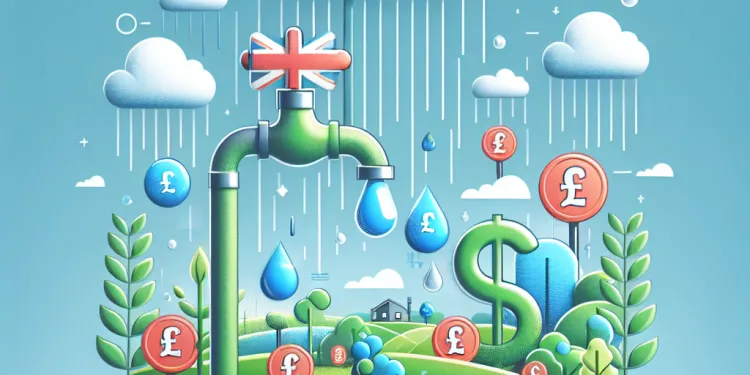
What causes water loss in the UK?
Relevance: 80%
-

Are water companies responsible to maintain and update infrastructure in the UK?
Relevance: 79%
-
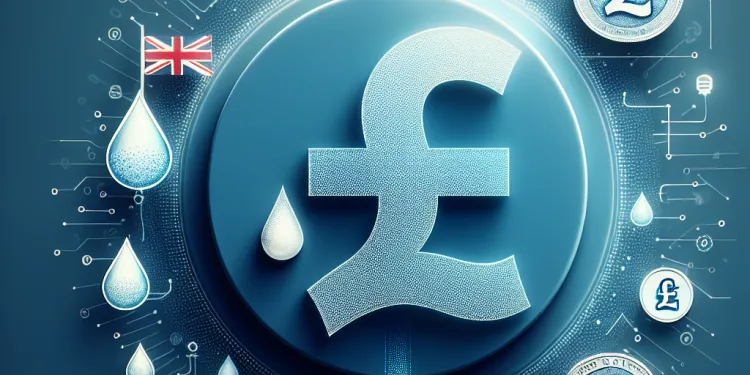
What are the financial implications of water loss for the UK?
Relevance: 78%
-
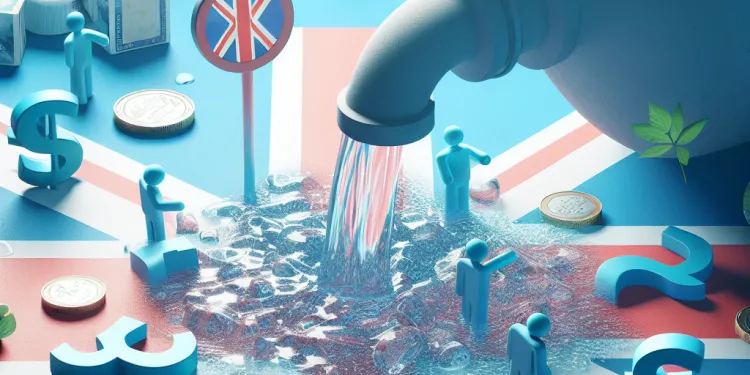
How much water is lost in the UK through poor infrastructure?
Relevance: 78%
-
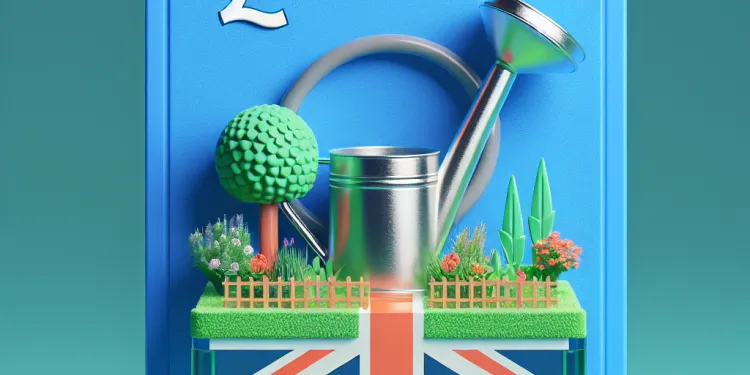
Can I use a watering can during a hosepipe ban?
Relevance: 75%
-
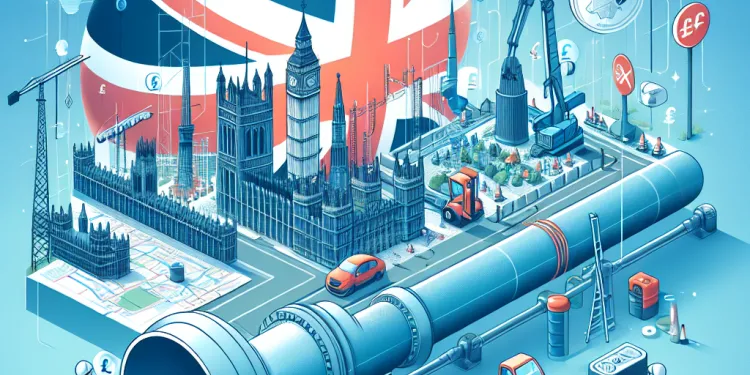
Do water companies have to update the infrastructure?
Relevance: 74%
-
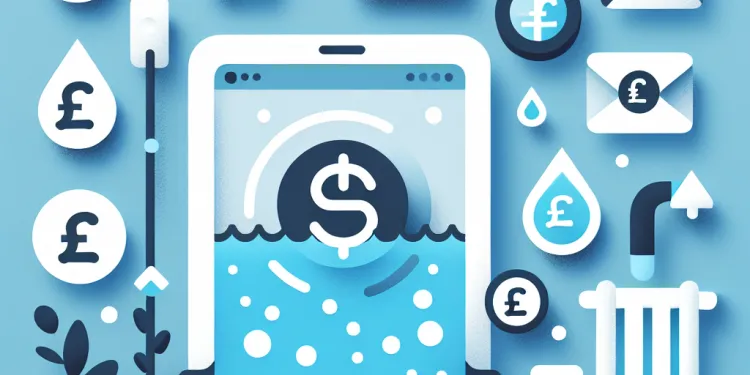
Are there penalties for water companies besides issuing refunds?
Relevance: 73%
-

What is the role of consumers in reducing water loss?
Relevance: 70%
-
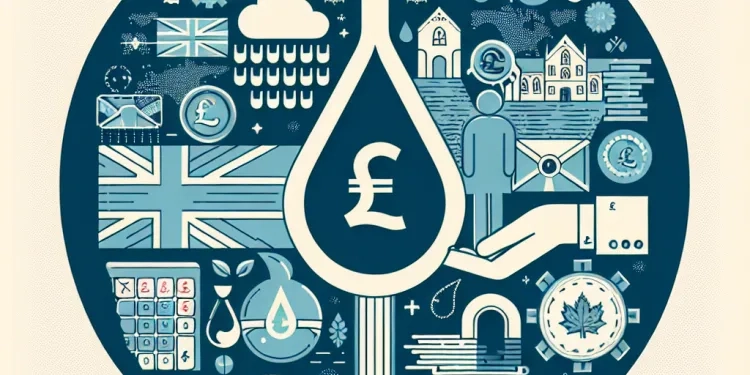
Are there any government initiatives to tackle water loss in the UK?
Relevance: 70%
-
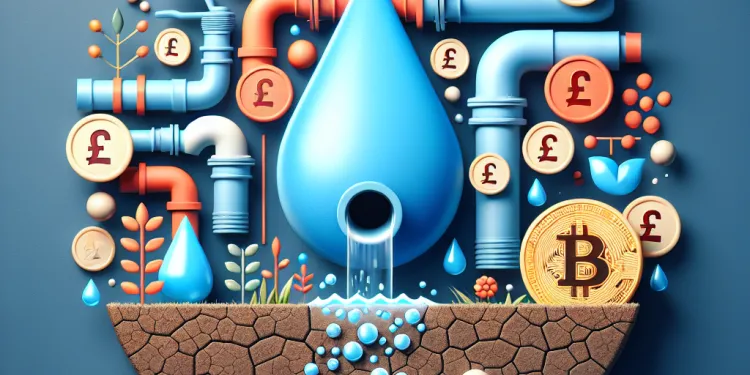
How significant is the water loss problem in the UK?
Relevance: 70%
-

What impact does water loss have on the environment in the UK?
Relevance: 69%
-

Can individual actions significantly impact overall water loss?
Relevance: 66%
-

Who regulates the performance and compliance of UK water companies?
Relevance: 65%
-

What is the role of a water regulator in my claim?
Relevance: 64%
-

Does Thames Water enforce a hosepipe ban more than other water authorities?
Relevance: 64%
-
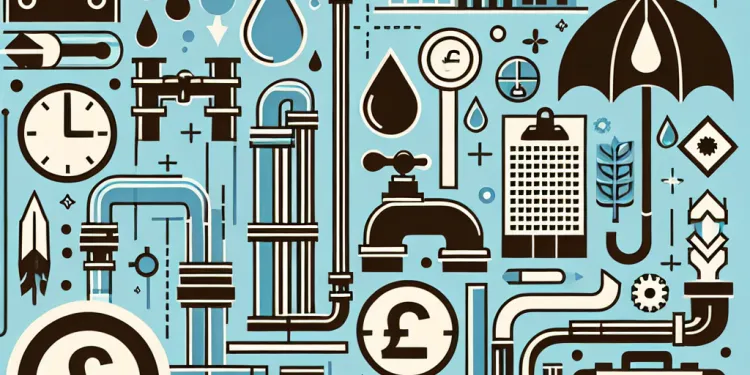
Do water companies have long-term infrastructure plans?
Relevance: 64%
-

How old is the water infrastructure in the UK?
Relevance: 63%
-

What measures are being taken to address water loss in the UK?
Relevance: 62%
-

What does water infrastructure maintenance involve?
Relevance: 62%
-

Does Thames Water impose hosepipe bans more frequently than other water authorities?
Relevance: 61%
-
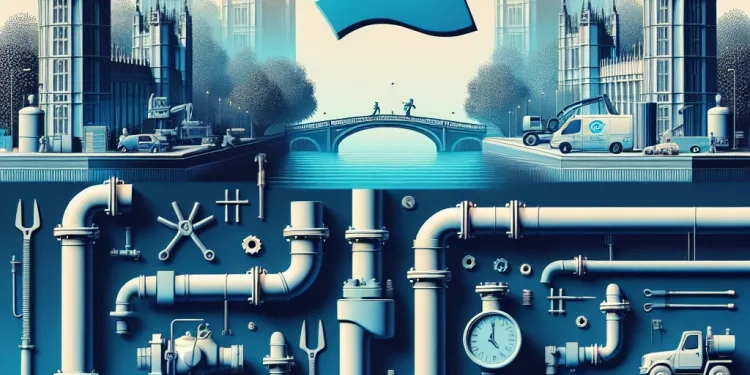
What challenges do water companies face in maintaining infrastructure?
Relevance: 60%
-
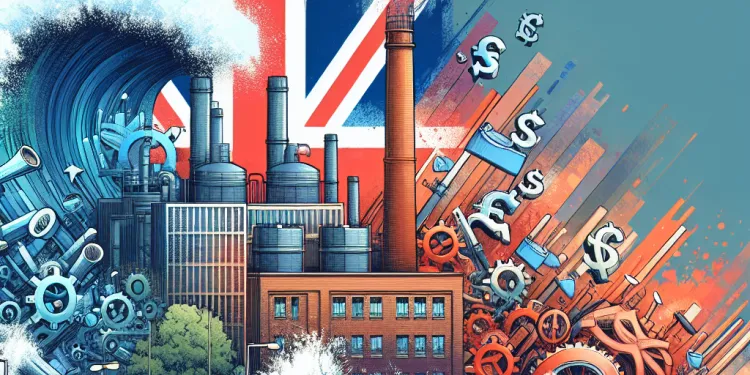
Can water companies enter my property to enforce a hosepipe ban?
Relevance: 59%
-
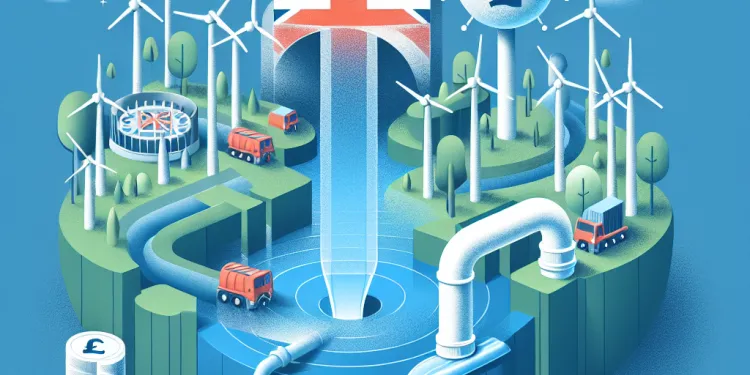
How does climate change affect water infrastructure maintenance?
Relevance: 59%
-
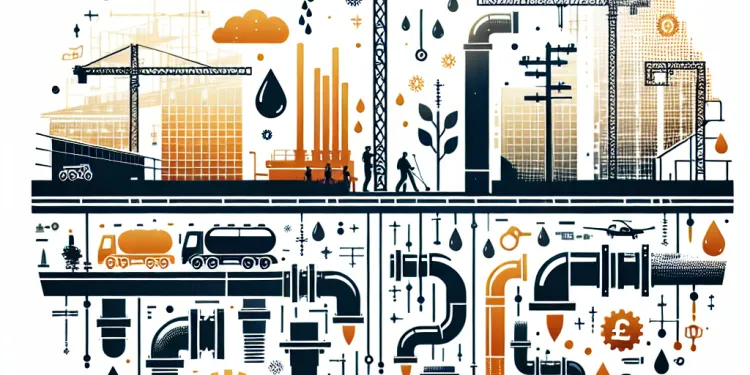
How are infrastructure priorities determined by water companies?
Relevance: 58%
-

How transparent are water companies regarding infrastructure improvements?
Relevance: 58%
-
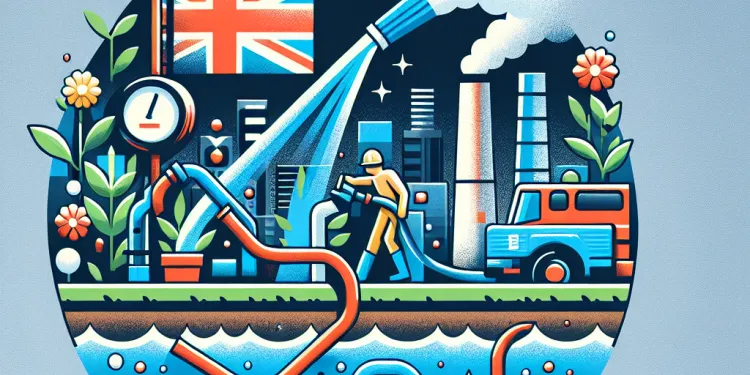
Under what conditions does Thames Water typically impose a hosepipe ban?
Relevance: 56%
-
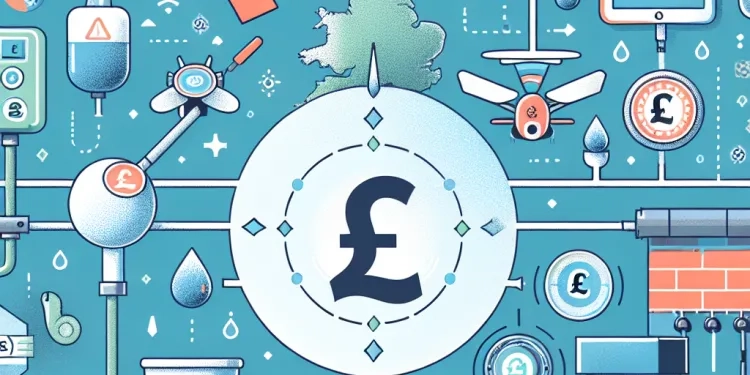
How are new technologies helping to reduce water loss in the UK?
Relevance: 56%
-
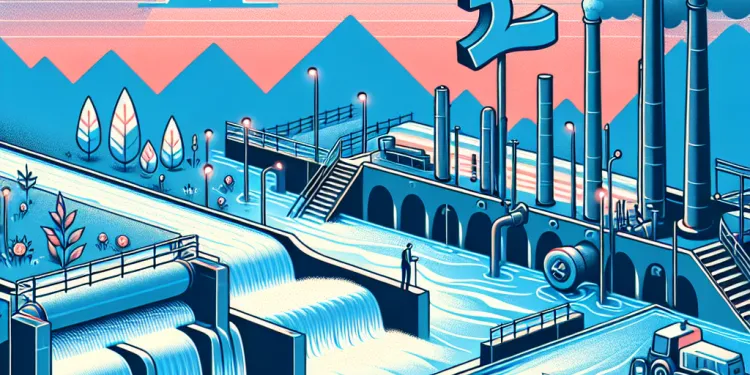
Can customers report issues with water infrastructure?
Relevance: 53%
-

Do I need a different SPF for water-related activities?
Relevance: 50%
-
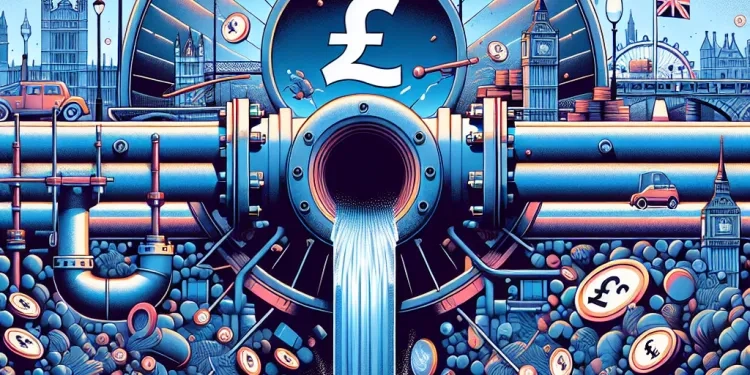
What happens if a water main bursts?
Relevance: 50%
-
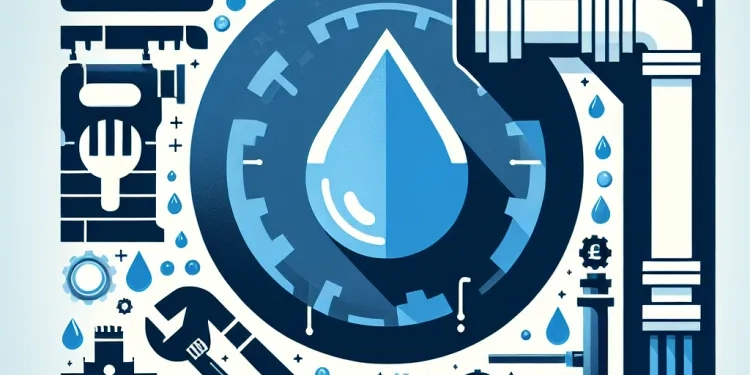
What are common signs of leaks in water infrastructure?
Relevance: 48%
-
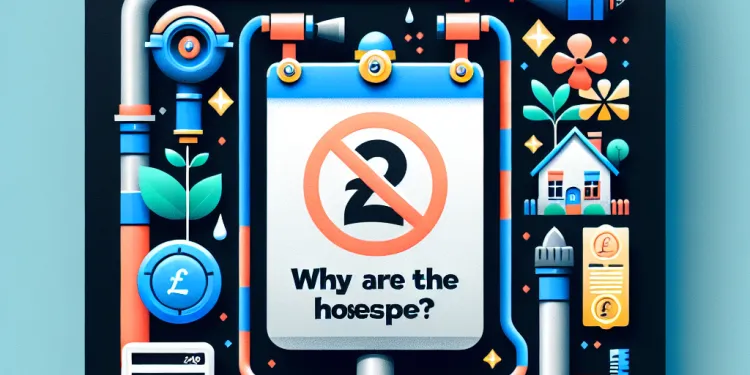
Why are hosepipe bans imposed?
Relevance: 47%
-
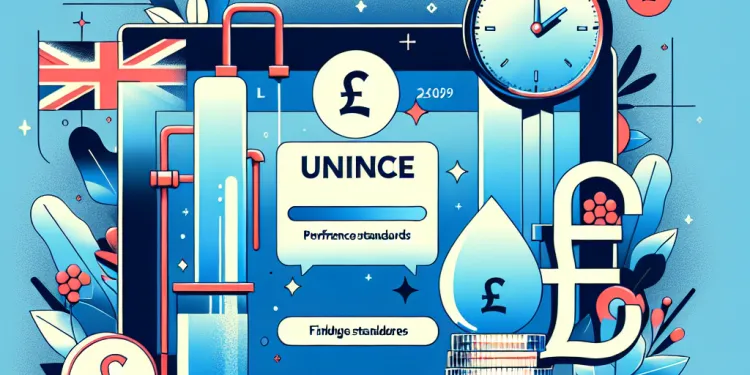
Where can customers find updates on their water company's performance standards?
Relevance: 46%
-
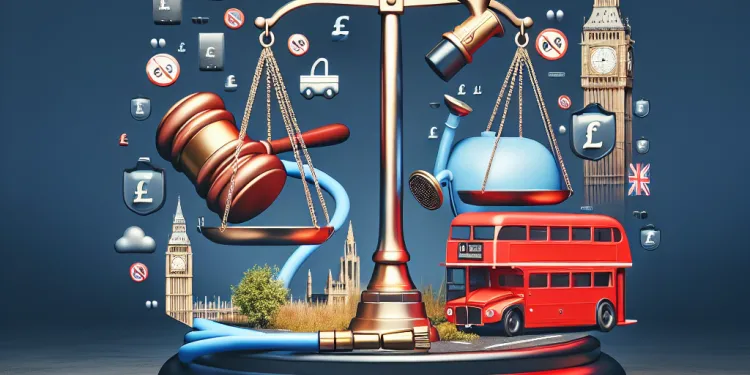
What is the penalty for violating a hosepipe ban from Thames Water?
Relevance: 46%
-
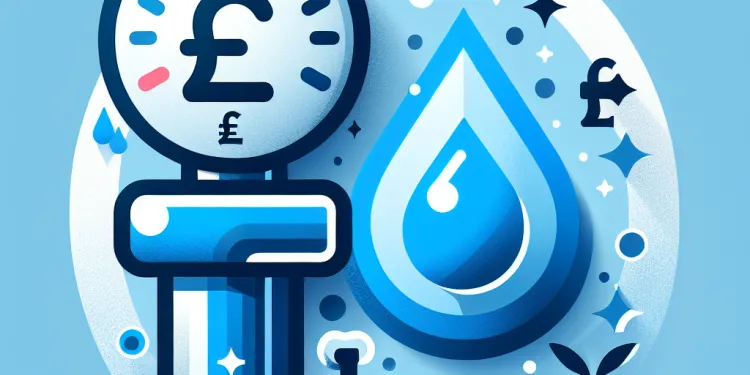
Which UK water companies are going to refund their customers for poor performance?
Relevance: 46%
-

How will refunds affect investments towards improving water infrastructure?
Relevance: 46%
Introduction
In the United Kingdom, maintaining water infrastructure is vital for ensuring the safety, reliability, and quality of the water supply. The infrastructure includes reservoirs, pipelines, treatment plants, and other facilities essential for delivering clean water and managing wastewater. Neglecting these systems can lead to severe consequences not only for public health and the environment but also for organizations responsible for water services. This article delves into the penalties water companies may face if they fail to maintain infrastructure adequately.
Regulatory Framework
The water industry in the UK is regulated by several bodies, primarily Ofwat, the Water Services Regulation Authority. Ofwat sets the standards and expectations for water companies, ensuring they meet their responsibilities regarding infrastructure maintenance. Water companies must regularly inspect and upkeep their facilities to comply with regulations and avoid potential pitfalls associated with inadequate maintenance. The regulatory framework is designed to protect consumers and the environment, promoting sustainable water management practices.
Penalties for Non-compliance
When water companies fail to maintain their infrastructure, they risk incurring significant penalties. Ofwat has the authority to impose fines on companies that do not meet regulatory requirements. These fines can be substantial, reaching up to 10% of a company’s annual turnover, which can significantly affect their financial stability and reputation. Moreover, Ofwat can also impose enforcement orders requiring companies to take corrective actions promptly.
Impact on Public Health and Environment
Neglecting water infrastructure can lead to serious public health and environmental issues. For instance, outdated or poorly maintained systems might result in contaminated water supplies, leading to illness and disease outbreaks. Similarly, inadequate wastewater management can cause pollution, harming aquatic ecosystems and disrupting the natural balance. Such failures can attract further scrutiny from environmental agencies and lead to additional penalties and legal challenges.
Reputational Damage
Besides financial penalties, water companies face reputational risks if they fail to maintain their infrastructure. Negative publicity can erode public trust, resulting in a loss of consumer confidence and potentially affecting customer satisfaction and loyalty. Moreover, poor reputation can make it difficult for companies to garner support for future projects, investments, or expansions, affecting their long-term growth and success.
Conclusion
Maintaining water infrastructure is a critical responsibility that water companies in the UK cannot afford to neglect. The penalties for failing to do so are significant, encompassing regulatory fines, environmental and health-related repercussions, and reputational damages. It is imperative that water companies invest adequately in infrastructure maintenance to ensure reliable services and uphold their duty to customers, regulators, and the environment. Therefore, prioritizing water infrastructure maintenance is not just a regulatory obligation but an ethical and practical necessity for sustainable water management.
Introduction
In the UK, water systems are very important. They help us get safe and clean water. These systems include big water tanks, pipes, and places where water is cleaned. If we don't take care of them, bad things can happen. People might get sick, and nature can be harmed. This article talks about what happens if water companies don't take care of their water systems properly.
Regulatory Framework
In the UK, there are rules for how water companies should work. Ofwat is the main body that makes sure these companies do their job well. Water companies must check and fix their water systems regularly. These rules help keep people and nature safe, and they help us use water wisely.
Penalties for Non-compliance
If water companies don't look after their systems, they can get into trouble. Ofwat can make them pay big fines. The fines can be up to 10% of what the company earns in a year. This can be a lot of money and can hurt the company. Ofwat can also tell them to fix things quickly.
Impact on Public Health and Environment
If we don't take care of water systems, people can get sick. Dirty water can make us ill. Also, when wastewater is not managed well, it can pollute rivers and harm fish and plants. This can lead to more problems and might get the company into legal trouble.
Reputational Damage
Besides losing money, water companies might lose people's trust. If they don't do a good job, people might not like them anymore. This can make customers unhappy and not want to use their services. A bad reputation can also make it hard for the company to grow in the future.
Conclusion
Taking care of water systems is very important for water companies in the UK. The problems from not doing this can be big. They can lose money, harm the environment, and get a bad reputation. So, water companies need to keep their systems in good shape. This helps ensure everyone gets clean water and protects nature.
Frequently Asked Questions
What are the potential penalties for not maintaining water infrastructure?
Penalties can include fines, legal action, increased liability, and additional costs for emergency repairs.
How do regulatory bodies enforce penalties for failing to maintain water infrastructure?
Regulatory bodies may enforce penalties through fines, revoking permits, or requiring corrective actions.
Can failing to maintain water infrastructure lead to legal consequences?
Yes, neglect can lead to lawsuits from affected parties or enforcement actions by regulatory agencies.
Are there environmental penalties associated with poor water infrastructure maintenance?
Yes, failing infrastructure that causes environmental harm can result in penalties under environmental protection laws.
What financial implications can arise from not maintaining water infrastructure?
Financial implications can include increased repair costs, fines, and higher insurance premiums.
Is it more cost-effective to maintain water infrastructure or face penalties?
Generally, regular maintenance is more cost-effective than facing penalties and crisis management.
How do penalties affect the reputation of organizations responsible for water infrastructure?
Penalties can harm the trust and reputation of organizations, leading to public criticism and loss of credibility.
Are penalties for not maintaining water infrastructure uniform across all regions?
No, penalties can vary by region depending on local laws and regulations.
What role do insurance companies play regarding penalties for water infrastructure negligence?
Insurance companies may adjust premiums or deny coverage based on the risk associated with poor maintenance.
What preventive measures can be taken to avoid penalties related to water infrastructure?
Implementing regular maintenance schedules and inspections can help avoid penalties.
Do penalties for not maintaining water infrastructure include performance bonds?
Yes, performance bonds can be forfeited if contracted maintenance is not performed.
Can individuals within an organization face personal penalties for poor water infrastructure maintenance?
In some cases, individuals may face disciplinary action or be held accountable if negligence is proven.
What are the long-term impacts of not maintaining water infrastructure beyond immediate penalties?
Long-term impacts can include infrastructure failure, public health risks, and increased reconstruction costs.
Are there specific penalties for not maintaining stormwater infrastructure?
Yes, similar penalties as water infrastructure may apply, often involving environmental compliance.
How do government grants influence penalties for water infrastructure maintenance?
Failure to meet maintenance conditions of grants can lead to penalties such as funding withdrawal.
Can the public report issues related to water infrastructure maintenance to trigger penalties?
Yes, public complaints can lead to investigations and potential penalties for the responsible entities.
Do penalties include requirements for implementing modern technologies in water infrastructure?
In some cases, penalties may require updates to infrastructure to meet modern standards.
What is the role of audits in enforcing penalties for water infrastructure maintenance?
Audits can identify maintenance failures, leading to penalties if issues are not addressed.
Do penalties vary depending on the severity of the water infrastructure issues?
Yes, penalties often depend on the extent of non-compliance and potential harm caused.
Can penalties for water infrastructure neglect include community service requirements?
While unusual, some penalties might include requirements that benefit affected communities.
What happens if you don't take care of water systems?
If you don't look after water pipes and pumps, there can be problems. Here are some things that might happen:
- People might not have clean water to drink.
- Water pipes could break and cause floods.
- The government might give you a fine (a money punishment).
- It's possible people could get sick.
To help understand better, you can:
- Ask someone to explain things with pictures.
- Use a dictionary to find easy words.
- Watch videos about how water systems work.
If rules are broken, people might have to pay money. There could also be court problems, more blame, and extra money needed for fixing things quickly.
How do groups in charge give punishments if water pipes and systems are not kept nice?
Groups make sure water pipes and systems work well. If they are not fixed or looked after, the group can give punishments. Punishments can be warnings, fines, or making the water company fix things quickly.
Support Tools:
- Pictures and Videos: Look at pictures or watch videos about how water systems work.
- Simple Words: Use easy words to learn about water pipes and how they are kept nice.
- Help from Others: Ask a teacher or friend to explain more if it's hard to understand.
Regulatory groups can give out punishments. They might make someone pay money, take away a permit, or ask them to fix a problem.
What happens if we don't take care of pipes and taps?
If we don't fix or look after pipes and taps, it can cause problems. People might not get clean water. This can make them sick. If something bad happens, someone might get into trouble or have to pay a fine.
It is important to fix pipes and taps. This keeps water clean and safe. An adult can help you understand more.
Yes, if something is ignored or not taken care of, this can cause people to take legal action or for government agencies to step in and enforce rules.
Does not taking care of water pipes and systems hurt the environment?
Explanation:
- Water pipes and systems help us get clean water.
- When they are not taken care of, it can cause problems.
- This can hurt nature, like rivers, lakes, and animals.
Helpful tools to understand better:
- Use pictures and diagrams to see how water systems work.
- Watch videos about why water is important.
- Play games that teach about saving water.
Yes, when old or broken buildings and roads hurt the environment, there can be punishments. This is because of special rules that protect nature.
What happens if we don't take care of our water pipes and systems?
If we don't look after our water pipes, bad things can happen. Here are some things that might happen:
- We might spend more money fixing broken pipes.
- Water might spill out and not reach people who need it.
- We might have to pay for water that is lost.
We can use tools to help understand. Pictures can show how pipes work. Simple charts can explain costs.
Money problems can mean you have to pay more for fixing things, pay fines, or pay more for insurance.
Is it cheaper to fix water pipes or pay fines?
It's cheaper to take care of things regularly than to pay fines or fix big problems later.
How do punishments change what people think about companies that take care of water systems?
Sometimes, if a company that looks after water systems does something wrong, they get a punishment. This could be a fine or a bad report.
When this happens, people might start to think badly of the company. They might not trust them to do a good job next time.
To understand this better, you can use pictures or talk to someone who knows about water systems.
Penalties can hurt how people see and trust organizations. This can make others say bad things about them and make them lose trust.
If reading is hard, try these tips:
- Use a ruler or your finger to keep your place.
- Read slowly, one sentence at a time.
Are the rules the same everywhere for not taking care of water pipes and systems?
Here is some help to understand:
- "Water pipes and systems" means all the things that bring water to our homes.
- "Rules" are things we must follow. If we don't, we might get in trouble.
- "Same everywhere" means do all places use the same rules?
You can use pictures, videos, or ask someone to help explain more if you need.
No, the rules can be different in each place because of local laws.
How do insurance companies deal with problems in water systems?
Insurance companies might change how much you pay or say no to giving you insurance if your things are not well looked after.
How can we stop getting in trouble with water pipes and systems?
- **Check Regularly:** Look at water pipes to see if they are working well. - **Fix Problems Early:** If something is broken, fix it soon. - **Follow Rules:** Do what the rules say about water systems. - **Ask for Help:** Get advice from a water expert if needed. - **Learn:** Use easy tools or videos online to understand more.Regular check-ups and fixes can stop you from getting into trouble.
Do you have to pay money if water pipes break?
Yes, you can lose performance bonds if you do not do the maintenance work you agreed to.
Can people in a company get in trouble if they don't take care of the water pipes?
In a company, some people are in charge of making sure water pipes work well. If they do a bad job, they might get in trouble. This means they could face penalties, like paying money or losing their jobs.
To understand this better, you can:
- Ask a friend or family member to help explain.
- Look for videos or pictures that show how water systems work.
- Use reading tools such as dictionaries to understand hard words.
Sometimes, people might get in trouble or be blamed if it is shown that they were not careful.
What happens if we don't take care of water systems for a long time?
Keeping water systems in good shape is important. If we don't, it can cause problems over time. Here are some things that might happen:
- The water may not be clean and safe to drink.
- There could be leaks, wasting water.
- Repairing broken systems can be very expensive later.
- People might have less water for showers, cooking, and cleaning.
Using pictures, videos, or talking with someone who knows about water systems can help understand this better.
Over time, there can be big problems like broken roads and bridges, people getting sick, and spending a lot of money to fix things.
Tips: Use pictures or drawings to help understand. Try listening to the words with a text-to-speech tool.
What happens if we don't take care of rainwater systems?
Yes, there can be similar punishments for water systems. These often have to do with following environmental rules.
How do government grants affect penalties for taking care of water infrastructure?
Government grants are money given by the government. They can help pay for fixing and taking care of water pipes, pumps, and other water structures. If the government gives money, it might be easier to fix problems.
If water structures are not taken care of, there can be penalties. Penalties are like punishments or fines. When grants help pay for maintenance, penalties may happen less often because things are better maintained.
Here are some tips to understand this topic better:
- Look at pictures or videos about water infrastructure to see what it looks like.
- Use a simple dictionary to learn new words like "infrastructure" and "penalties."
- Ask someone to explain it in their own words if you are confused.
If you do not follow the rules for taking care of things bought with a grant, you might have to give the money back or lose it.
Can people tell someone if there is a problem with water pipes or systems?
If you see a problem with water pipes or systems, you can tell the right people. This can help fix the problem.
You can use a phone or computer to report the problem. You might use apps like FixMyStreet or websites for your town or city.
It's important to speak up when something doesn't work. This way, it gets fixed, and everyone gets clean water.
Yes, if people complain, it can make someone check and see if there is a problem. If there is, the people or company responsible could get in trouble.
Do penalties mean we must use new technology for water systems?
Sometimes, you might have to make changes to buildings and roads to keep them safe and up-to-date.
How do checks help with fixing and punishing water pipe problems?
Checks can find things that need fixing. If you don't fix them, you might get in trouble.
Do punishments change if water problems are big or small?
Yes, when rules are broken, the punishment can change depending on how bad the rule-breaking is and how much harm it causes.
Can people be asked to do community service for not taking care of water pipes?
Sometimes, when people or companies do something wrong, they have to do things to help the people or places they hurt. These are like punishments, but they are meant to help make things better for everyone.
Useful Links
- Ergsy carfully checks the information in the videos we provide here.
- Videos shown by Youtube after a video has completed, have NOT been reviewed by ERGSY.
- To view, click the arrow in centre of video.
- Most of the videos you find here will have subtitles and/or closed captions available.
- You may need to turn these on, and choose your preferred language.
- Go to the video you'd like to watch.
- If closed captions (CC) are available, settings will be visible on the bottom right of the video player.
- To turn on Captions, click settings .
- To turn off Captions, click settings again.
More Items From Ergsy search
-

Are water companies responsible for maintaining water infrastructure in the UK?
Relevance: 100%
-

Are there penalties for not maintaining water infrastructure?
Relevance: 93%
-

Are there initiatives to improve water efficiency in infrastructure?
Relevance: 83%
-

How do water companies fund infrastructure updates?
Relevance: 81%
-

What causes water loss in the UK?
Relevance: 80%
-

Are water companies responsible to maintain and update infrastructure in the UK?
Relevance: 79%
-

What are the financial implications of water loss for the UK?
Relevance: 78%
-

How much water is lost in the UK through poor infrastructure?
Relevance: 78%
-

Can I use a watering can during a hosepipe ban?
Relevance: 75%
-

Do water companies have to update the infrastructure?
Relevance: 74%
-

Are there penalties for water companies besides issuing refunds?
Relevance: 73%
-

What is the role of consumers in reducing water loss?
Relevance: 70%
-

Are there any government initiatives to tackle water loss in the UK?
Relevance: 70%
-

How significant is the water loss problem in the UK?
Relevance: 70%
-

What impact does water loss have on the environment in the UK?
Relevance: 69%
-

Can individual actions significantly impact overall water loss?
Relevance: 66%
-

Who regulates the performance and compliance of UK water companies?
Relevance: 65%
-

What is the role of a water regulator in my claim?
Relevance: 64%
-

Does Thames Water enforce a hosepipe ban more than other water authorities?
Relevance: 64%
-

Do water companies have long-term infrastructure plans?
Relevance: 64%
-

How old is the water infrastructure in the UK?
Relevance: 63%
-

What measures are being taken to address water loss in the UK?
Relevance: 62%
-

What does water infrastructure maintenance involve?
Relevance: 62%
-

Does Thames Water impose hosepipe bans more frequently than other water authorities?
Relevance: 61%
-

What challenges do water companies face in maintaining infrastructure?
Relevance: 60%
-

Can water companies enter my property to enforce a hosepipe ban?
Relevance: 59%
-

How does climate change affect water infrastructure maintenance?
Relevance: 59%
-

How are infrastructure priorities determined by water companies?
Relevance: 58%
-

How transparent are water companies regarding infrastructure improvements?
Relevance: 58%
-

Under what conditions does Thames Water typically impose a hosepipe ban?
Relevance: 56%
-

How are new technologies helping to reduce water loss in the UK?
Relevance: 56%
-

Can customers report issues with water infrastructure?
Relevance: 53%
-

Do I need a different SPF for water-related activities?
Relevance: 50%
-

What happens if a water main bursts?
Relevance: 50%
-

What are common signs of leaks in water infrastructure?
Relevance: 48%
-

Why are hosepipe bans imposed?
Relevance: 47%
-

Where can customers find updates on their water company's performance standards?
Relevance: 46%
-

What is the penalty for violating a hosepipe ban from Thames Water?
Relevance: 46%
-

Which UK water companies are going to refund their customers for poor performance?
Relevance: 46%
-

How will refunds affect investments towards improving water infrastructure?
Relevance: 46%